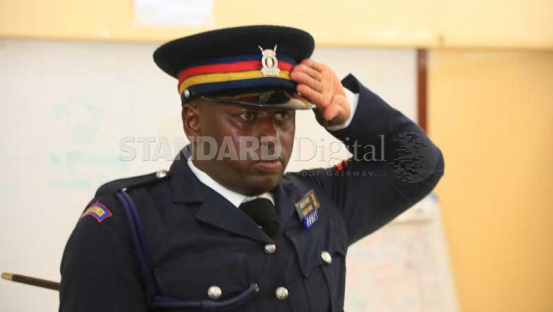×
The Standard e-Paper
Fearless, Trusted News

Corporal David Chumo from Bomet County when he appeared before the Police vetting exercise in Kisumu
David Chumo’s living room is decorated with several framed photos. The fading images immortalise his journey as a policeman; from his recruitment in 1998, to 2017 when he was recognised as the most incorruptible traffic police officer in the country.